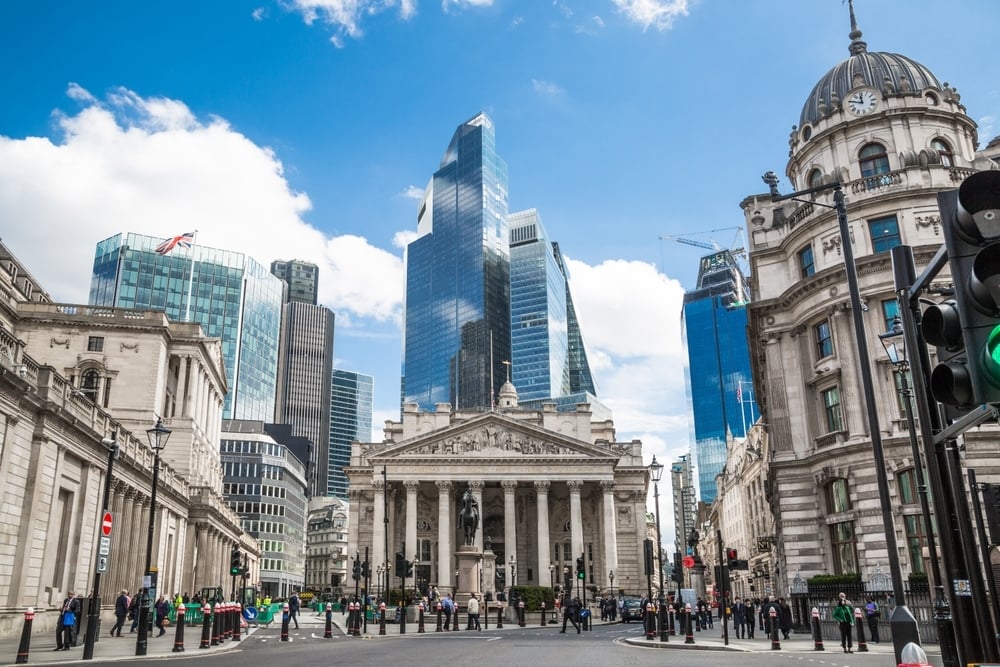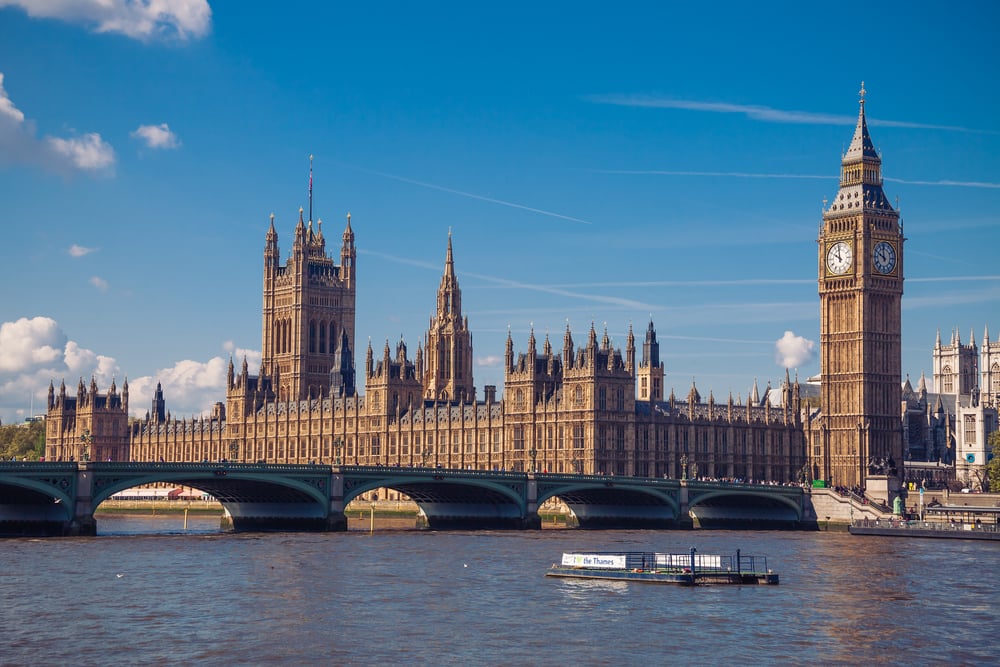Weekly Briefing: BoE Interest Rates Decision, VAT on Private Hire Vehicles, Foreign Investment in the UK, and Global Trade Uncertainty
This week’s briefing covers several key developments that could have a significant impact on markets and investment strategies. We start with the Bank of England’s unexpected interest rate cut, followed by new debates surrounding Labour’s proposed VAT on private hire vehicles. Additionally, concerns are rising over the recent dip in capital gains tax receipts, raising questions about foreign investor sentiment. Meanwhile, UNCTAD has issued a stark warning regarding the global effects of escalating tariff tensions.
As always, we delve deeper into the implications of these events for investors, business owners, and high-net-worth individuals. With markets still fragile amid shifting fiscal and trade policies, understanding the evolving policy landscape is crucial to navigating the risks and opportunities ahead.
BoE Interest Rates Decision
- The Bank of England has lowered the Bank Rate by 25 basis points, bringing it down to 4.25%. This marks a shift in policy direction, though officials were quick to emphasise that monetary conditions remain tight.
The decision reflects a cautious response to the ongoing decline in inflation, and while it hints at the start of an easing cycle, the Bank is maintaining a firm stance to guard against inflation reaccelerating. For investors, this move signals that the era of aggressive tightening may be ending, but the path to lower rates is likely to be gradual and data-driven. - The vote on the rate cut revealed a significant split within the Monetary Policy Committee (MPC). Two members advocated for a deeper cut of 50 basis points, citing signs of slack in the economy and subdued consumer demand. Conversely, two others preferred to keep rates unchanged, pointing to persistent inflation pressures in key sectors such as services and labour.
This internal division adds a layer of uncertainty to the interest rate outlook and may prompt volatility in market expectations, especially as the Committee navigates the balance between maintaining price stability and supporting growth. - Inflation has moved closer to the Bank’s 2% target, with consumer prices rising by 2.6% in March—broadly in line with projections. Nonetheless, the Bank anticipates a temporary uptick later in the year, potentially reaching 3.5% by the third quarter, primarily due to higher energy and regulated prices.
While this short-term rise is not unexpected, the underlying disinflationary momentum appears intact. Investors should note that inflation expectations among households have become more entrenched, and wage growth, although cooling, continues to pose upside risks. - Economic growth remains subdued despite a better-than-expected GDP print in February. Much of this strength is seen as transitory, and the Bank expects only marginal growth—around 0.1%—in the second quarter. Although the labour market is showing early signs of easing, employment conditions remain relatively tight.
Adding to the complexity are global headwinds, including US-led trade restrictions and potential retaliatory measures, which could dampen business sentiment and investment. These factors may not immediately affect inflation but could exacerbate already soft demand conditions in the UK. - Policymakers have reiterated that future interest rate decisions will depend on incoming data and not follow a predetermined course. The Bank is actively considering multiple scenarios—ranging from persistently weak demand that brings inflation down faster than anticipated, to a more stubborn price environment due to lingering wage and cost pressures.
These competing risks underline the need for nimble investment strategies. For HNWIs and institutional investors, the current landscape favours maintaining diversification and flexibility in both fixed income and equity allocations. - “Annual CPI inflation stood at 2.6% in March... underlying domestic cost pressures, including pay growth, have continued to moderate.”
– Excerpt from the Bank of England, May 2025 Monetary Policy Summary
Rachel Reeves Faces Backlash Over Proposed VAT on Private Hire Vehicles
- Shadow Chancellor Rachel Reeves has come under heavy criticism for a proposed VAT policy that could threaten thousands of jobs and harm the high street economy. Business leaders are warning that the so-called “taxi tax” could become a significant burden on consumers and small businesses alike.
- The policy in question would introduce a 20% VAT charge on all private hire vehicle journeys. This follows a legal ruling which determined that taxi firms, rather than individual drivers, are responsible for passenger contracts. The change is raising concerns about its wider economic consequences.
- Industry groups including the Federation of Small Businesses, the Night Time Industries Association, and the British Independent Retailers Association have jointly voiced their alarm. In a formal letter addressed to Ms Reeves, they outlined fears that the levy could drastically increase travel costs, prompting up to 25,000 drivers to leave the profession.
- The letter also warns that rising fare costs could discourage people from visiting high streets, particularly as footfall remains low. With consumers potentially deterred from shopping, dining, and nightlife, the impact could extend well beyond the transport sector.
- Economic ripple effects may include reduced local transport access, elevated prices for passengers, and financial strain on small enterprises like pubs, restaurants, and independent retailers. The groups argue that this would jeopardise jobs, reduce tax intake, and ultimately hinder consumer spending and economic growth.
- "We simply cannot afford another tax on the people we serve. This taxi tax risks pricing people out of city centres, damaging small businesses, and putting a real strain on an already fragile economy," the letter to Reeves concludes.
Is the UK Losing Its Appeal for Wealthy Foreign Investors?
- The UK’s recent drop in Capital Gains Tax (CGT) revenue has raised concerns about its relationship with wealthy foreign investors. CGT revenue fell from £14.5 billion to £13 billion for the year ending March 2025. Experts have suggested that the government's decision to abolish the non-dom tax status could be a significant factor in this decline.
- Robert Salter, director at tax advisory firm Blick Rothenberg, highlighted that the ending of the non-dom tax regime could reduce the number of wealthy non-doms in the UK, thereby lowering future CGT receipts. This shift could have broader implications for the UK’s financial landscape, especially considering the growing uncertainty in global markets.
- The Office for Budget Responsibility (OBR) has warned of a potential fiscal squeeze, with the government’s £9.9 billion of fiscal headroom described as “a very small margin.” With this in mind, there is increased speculation about potential tax hikes in the upcoming autumn Budget, which may affect both individuals and businesses as the government seeks to rebuild a financial buffer that is currently only a third of its pre-Covid levels.
- Despite the challenges, the UK remains a stable place to invest, particularly in light of recent turbulence in global financial markets. However, the end of the non-dom tax status has sparked debate about how the UK can continue to attract private overseas investment. As tax revenues face pressures, the government is being urged to consider alternatives to retain its appeal.
- In response, lobby groups such as Foreign Investors for Britain (FIFB) have been calling for a new tiered tax system, where foreign investors would pay an annual fee based on their wealth. The proposed fee for the upper tier could reach £2 million per year, though there are still concerns about how such measures would impact the UK’s overall competitiveness.
- “We are still talking,” said a spokesman for the FIFB, commenting on the ongoing discussions around the future of the UK’s tax system and its attractiveness to foreign investors. “Tax revenues and OBR forecasts are important considerations for the government.”
- Could the UK introduce a new initiative, such as a “UK investor visa,” to attract high-net-worth individuals and boost foreign investment? This is a question that continues to loom as the government faces fiscal pressure while balancing the need to remain competitive on the global stage.
- While questions have arisen about the future appeal of the UK for foreign investors, particularly in light of changes to the tax regime, UK-based investments remain an attractive option for local investors. For those eligible for tax-efficient investment schemes such as the EIS, SEIS, and VCTs, investing in UK startups offers significant potential for strong returns, alongside generous tax benefits.
This presents a compelling opportunity for investors looking to grow their wealth while benefiting from advantageous tax reliefs. To explore the latest opportunities and find out more about current investment prospects, visit our opportunities page.
Tariff Uncertainty Pushing Global Economy Towards Recession, Says UNCTAD
- The ongoing uncertainty around global trade policies, especially US President Donald Trump’s fluctuating tariff impositions, is contributing to growing fears of a global economic recession. According to a report from the United Nations Conference on Trade and Development (UNCTAD), these concerns have led to significant financial volatility across global markets.
- UNCTAD's latest projections indicate that global economic growth is expected to be just 2.3% in 2025, below the 2.5% threshold traditionally seen as necessary to avoid a global recession. Growth across the Americas is particularly weak, with both North and South America forecast to grow by only 1.2%, a sharp decline from the previous year’s 2.6% growth.
- A key indicator of trade policy uncertainty, the Trade Policy Uncertainty Index, has reached historic highs, more than double the levels seen during the Covid-19 pandemic. Global trade in goods has also been affected, with UNCTAD repeatedly revising down its growth estimates for the first quarter of 2025, and the Shanghai Containerized Freight Index — a major indicator of global trade volumes — dropping by 40% from January to March.
- Stock markets have been severely impacted by tariff announcements, particularly following Trump’s "Liberation Day" tariff proclamation in early April. As a result, the three major US stock indices remain about 2% lower than their levels prior to Trump's second term, despite monetary policy easing by central banks in the West.
- Geopolitical instability has led to rising long-term interest rates, despite efforts by central banks to loosen monetary policies. This, according to UNCTAD, reflects growing concerns over global economic prospects, with the US bond premium — the difference between long-term and short-term bond yields — continuing to rise, signalling investor pessimism about future US growth.
- “The rising geopolitical tensions, combined with escalating defence spending and tightening fiscal policies in developed nations, are placing an immense strain on global economic growth and stability,” said the UNCTAD report.
- As the global balance of power shifts, how will the growing economic influence of China affect global trade and investment opportunities for HNWIs and investors? With South-South trade gaining momentum and many developing countries increasing their trade dependence on China, these shifts may present new opportunities for investors in emerging markets.
Final Note
This week’s developments highlight both caution and opportunity for UK investors, business owners, and policy watchers.
The Bank of England’s rate cut signals a pivot in monetary policy, but uncertainty within the MPC and concerns over inflation persistence mean markets will continue to trade on every data point. For investors, staying agile and diversified remains key, especially as economic growth stalls and global trade disruptions intensify.
Meanwhile, domestic policy proposals—like the VAT on private hire vehicles—could weigh on consumer activity and small business vitality, further complicating the recovery. For SMEs, adapting to shifting regulatory and tax landscapes will be essential. GCV portfolio company, Finance Nation, continues to work with a range of lenders to help British businesses navigate these headwinds and access the capital they need to succeed.
On the investment front, falling CGT receipts and the abolition of the non-dom regime have sparked renewed debate over the UK’s competitiveness as a destination for global wealth. With calls for new incentives and investor-friendly policies growing louder, high-net-worth individuals may switch their attention to alternative investments which can continue to provide strong returns even in periods of external volatility, especially when backed up by tax-efficient wrappers like the EIS and SEIS.
Despite the challenges, the UK retains many core strengths. As policymakers and investors alike reassess the road ahead, those able to plan proactively will be best placed to seize long-term gains.
%20(3)%20(2).jpg)









